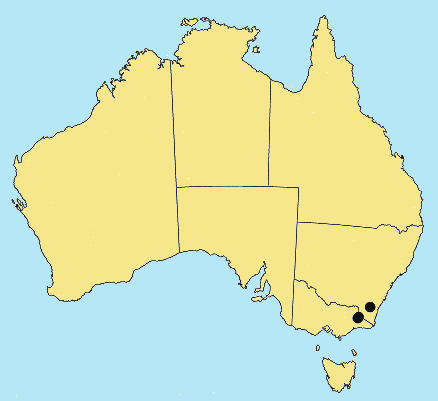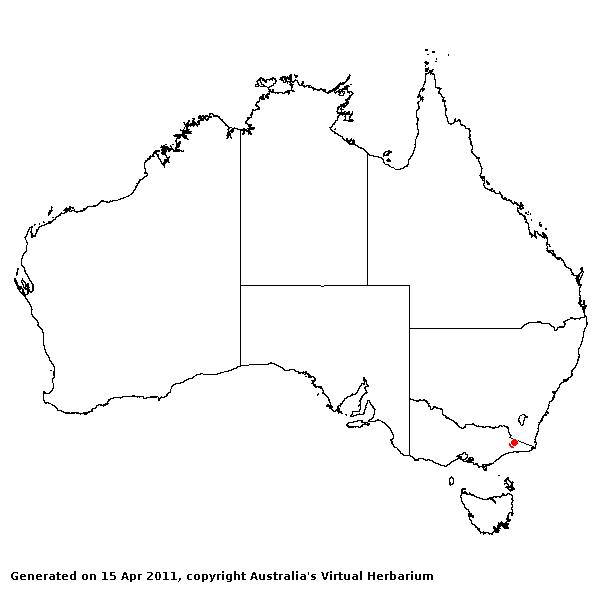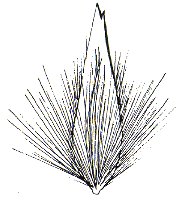Deyeuxia talariata N.G. Walsh. Muelleria
7: 386 (1991).
Classification. (GPWG 2001) : Subfamily Pooideae.
Tribe Poeae.
Type of Basionym or
Protologue Information: Australia,
East Gippsland: Walsh 801 (MEL holo).
Key references
(books and floras): [2002] D.Sharp & B.K.Simon, AusGrass, Grasses of
Australia,
[2009] A.Wilson (ed.). Flora of Australia, Vol 44A. Poaceae 2
(211).
Illustrations:
[2009]. A.Wilson (ed.), Flora of Australia 44A: Poaceae 2
(205, Fig.28).
Habit.
Perennial. Rhizomes present, short. Culms erect, 25–110 cm tall. Lateral
branches simple. Leaves mostly basal. Leaf-sheaths smooth or scaberulous,
glabrous on surface. Ligule an eciliate membrane, 1.5–3 mm long, membranous,
truncate. Leaf-blades linear, conduplicate, 6–40 cm long, 1.5–3 mm wide.
Leaf-blade surface scabrous, glabrous.
Inflorescence.
Inflorescence compound, a panicle. Panicle linear or oblong, 4–17 cm long.
Spikelets.
Spikelets pedicelled. Fertile spikelets 1-flowered, comprising 1 fertile
floret(s), with a barren rachilla extension, cuneate, laterally compressed,
3.6–5 mm long.
Glumes. Glumes
similar, thinner than fertile lemma. Lower glume lanceolate, membranous,
keeled, 1-keeled, 1 -nerved. Upper glume lanceolate, 3.6–5 mm long, membranous,
keeled, 1-keeled, 1 -nerved.
Florets.
Fertile lemma 3.6–5 mm long, without keel, 5 -nerved. Lemma apex muticous or
mucronate or awned, 1 -awned. Median (principal) awn apical or subapical,
0.3–0.8 mm long overall. Lodicules present. Anthers 3.
Continental
Distribution: Australasia.
Australian
Distribution: New South Wales, Victoria.
New South Wales: Southern Tablelands.
Victoria:
Snowfields.
Notes. Endemic. N.S.W. and
Vic. where it is rare on and near the Cobberas and Nunniong Plateau. Grows in
sodden, Sphagnum-rich heath at altitudes above 1000 m. Flowers Feb.



